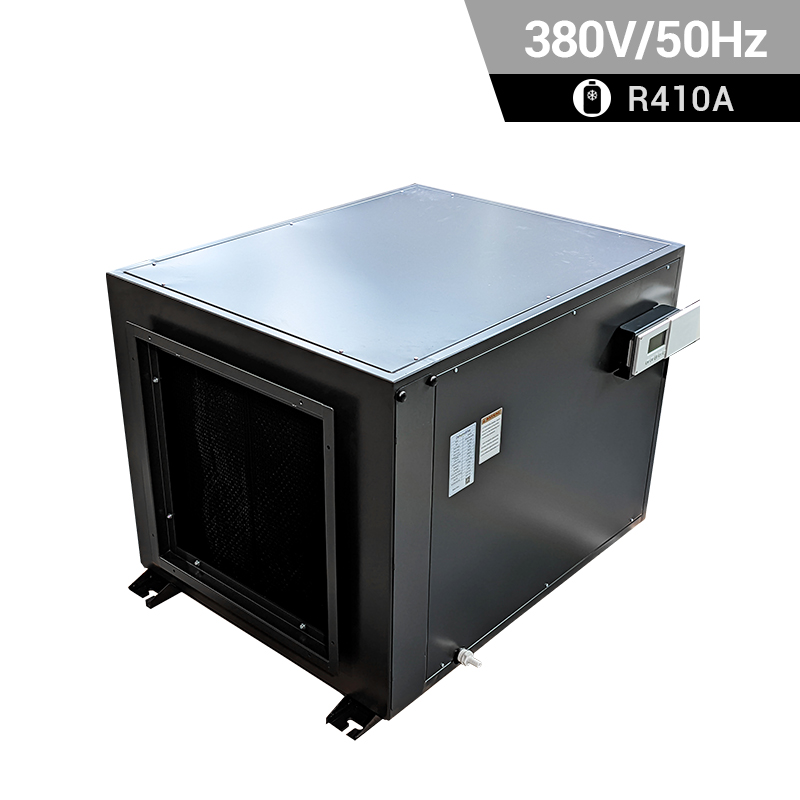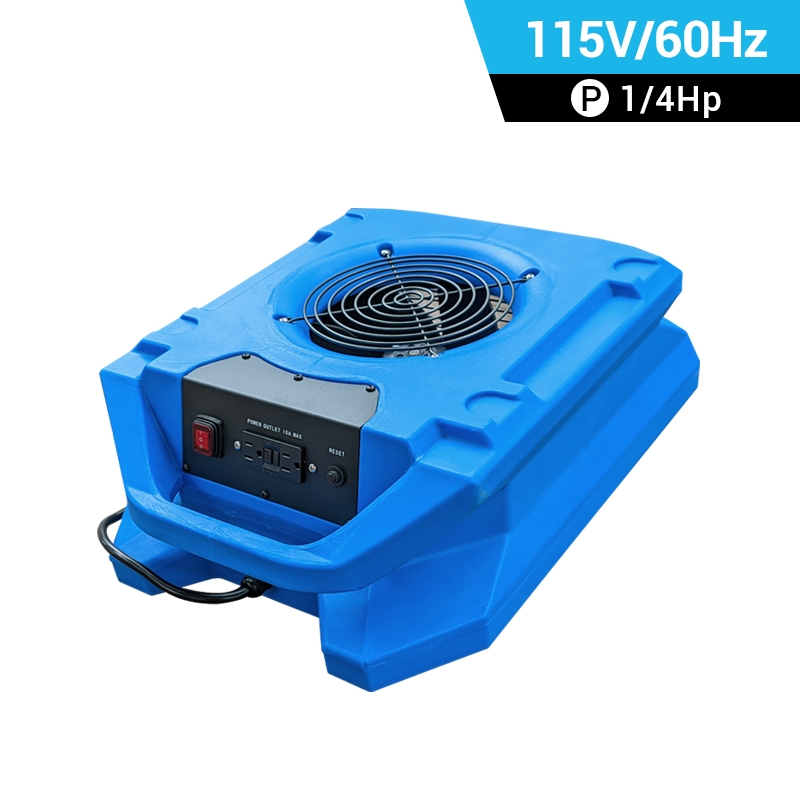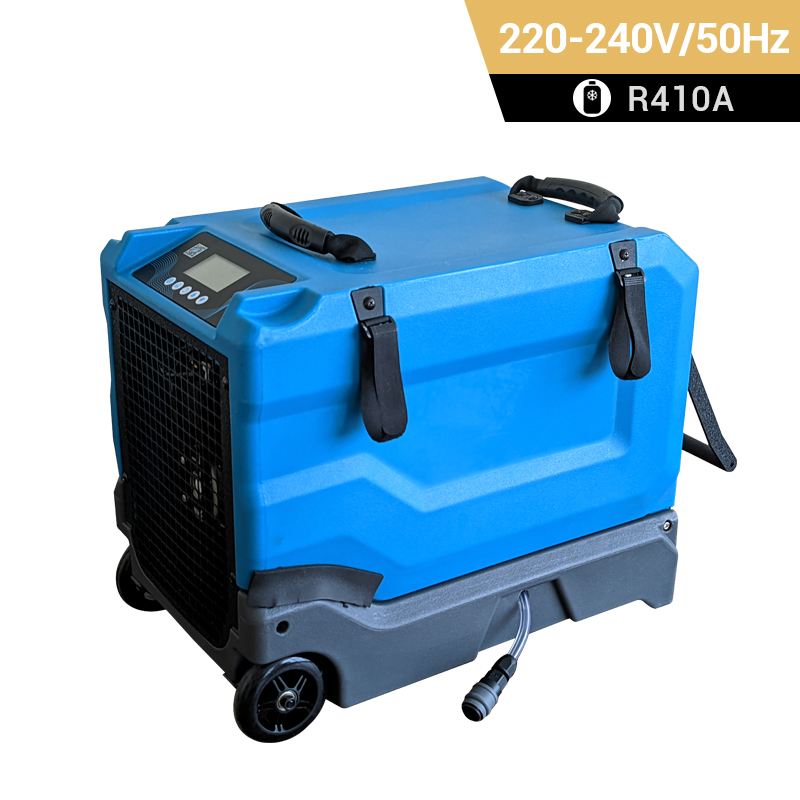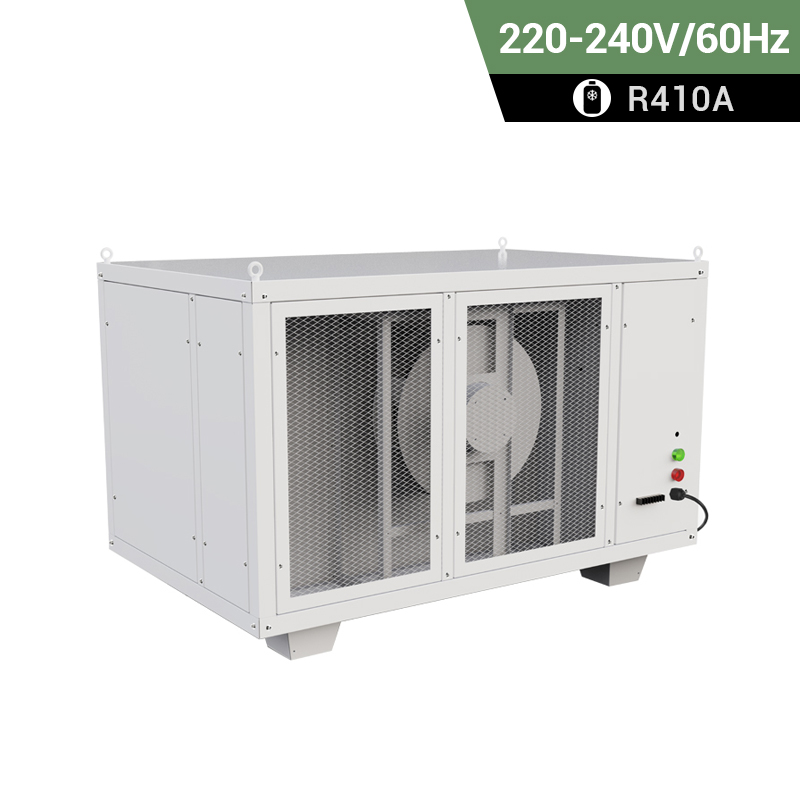Industrial Dehumidifier For Warehouse
Industrial dehumidifiers are beneficial in a variety of warehouses where controlling humidity levels is critical for maintaining the quality of stored goods and ensuring a safe working environment. The need for an industrial dehumidifier can arise in warehouses that store or handle products sensitive to moisture, and those located in climates with high humidity. Some examples of warehouses that may benefit from industrial dehumidification include:
Food Warehouses:
Warehouses storing food products, especially those with a longer shelf life, need to control humidity to prevent the growth of mold, bacteria, and other contaminants. Maintaining proper humidity levels helps preserve the quality and safety of food items.
Pharmaceutical Warehouses:
Pharmaceuticals are often sensitive to moisture, and humidity control is crucial to maintain the integrity and effectiveness of medications. Industrial dehumidifiers are used to create a stable environment for pharmaceutical storage.
Electronics Warehouses:
Warehouses storing electronic components and devices are susceptible to moisture-related damage. Controlling humidity helps prevent corrosion, rust, and electrical malfunctions in electronic equipment.
Textile Warehouses:
Fabrics and textiles can be adversely affected by high humidity, leading to mold growth and deterioration. Warehouse dehumidification is essential to protect textiles from damage during storage.
Paper and Printing Warehouses:
Paper products, including books, documents, and printing materials, are highly sensitive to changes in humidity. Maintaining a controlled environment helps prevent warping, yellowing, and deterioration of paper.
Wood and Timber Warehouses:
Wooden products and timber are susceptible to expansion, contraction, and mold growth in humid conditions. Dehumidifiers help maintain optimal moisture levels to preserve the quality of wood products.
Textile and Apparel Warehouses:
Fabrics and apparel can absorb moisture, leading to mold and mildew growth. Controlling humidity is essential to prevent damage to clothing and textiles.
Art and Artifact Warehouses:
Museums and warehouses storing valuable artifacts, paintings, and historical items require precise humidity control to prevent deterioration, mold growth, and other forms of damage.
Chemical and Laboratory Warehouses:
Warehouses storing chemicals, reagents, and laboratory equipment may require humidity control to prevent chemical reactions, degradation, and contamination.
Automotive Parts Warehouses:
Auto parts and components can be adversely affected by moisture, leading to rust and corrosion. Industrial dehumidifiers help protect automotive parts during storage.
Tobacco Warehouses:
Tobacco products are highly sensitive to changes in humidity. Proper dehumidification is crucial to maintain the quality of tobacco leaves and prevent mold growth.
Cold Storage Warehouses:
Cold storage facilities may require dehumidification to prevent condensation and ice buildup. Controlling humidity in refrigerated areas helps maintain optimal storage conditions for frozen or refrigerated goods.
Seed Warehouses:
Warehouses storing seeds need to control humidity to prevent germination, mold growth, and deterioration. Dehumidification helps maintain seed quality.
The specific need for an industrial dehumidifier in a warehouse depends on the type of products stored, the climate of the region, and the desired storage conditions. Regular monitoring of humidity levels and implementing dehumidification solutions can help protect valuable inventory and equipment.
Related Products

Top Selling Products
-

Phone
-

E-mail
-

Facebook
-

Youtube
-

Top





















